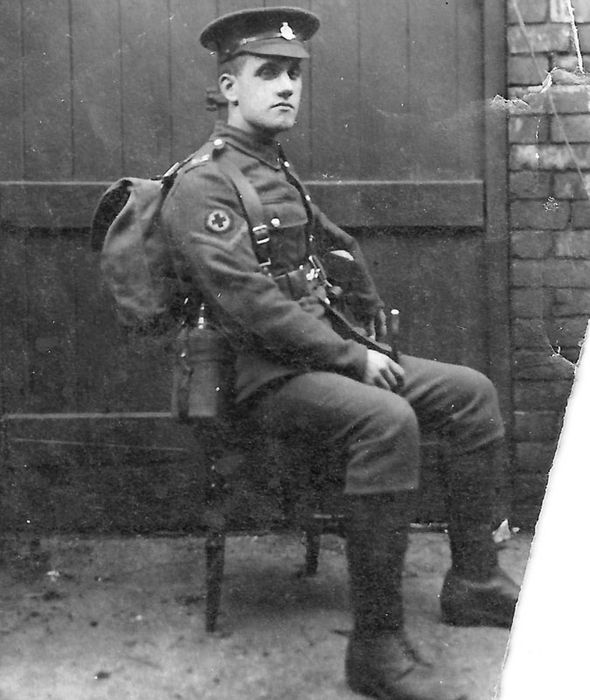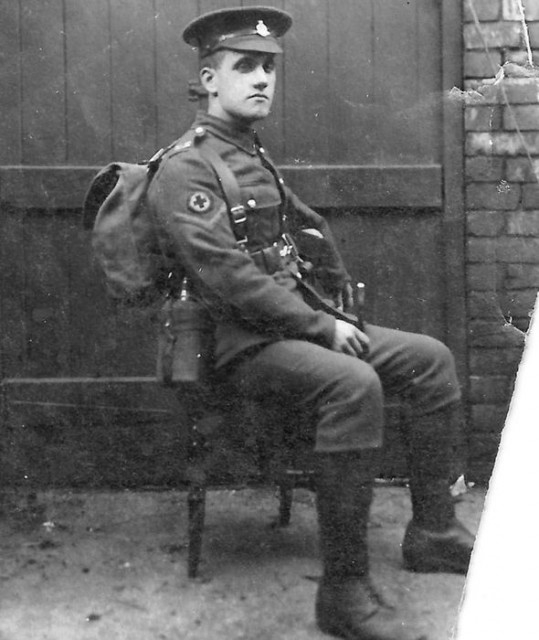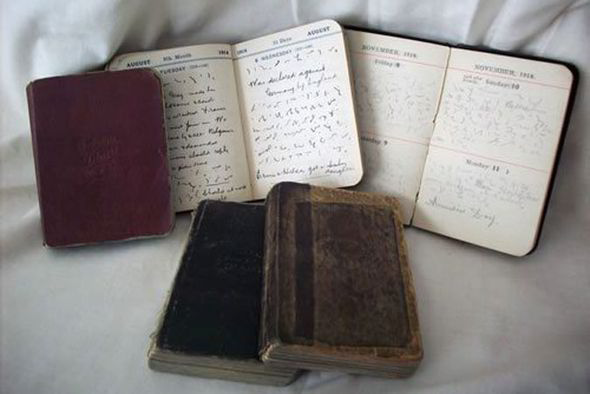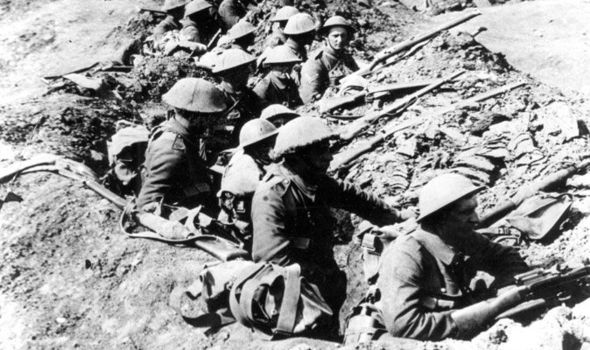The Express shares the story of a WWI hero whose diary will posted online 100 years to the day, each day the entry was written.
Private Arthur Linfoot volunteered for the Royal Army Medical Corps when he was 25 years old in 1915. He kept a journal of his experiences while in the trenches of France.
His journal was written in Pitman shorthand and it chronicled his days he fought. The journal begins on January 1, 1914 and ends on December 31 1918. The shorthand was able to be decoded by his son, Denis, who is 82 years old.
Linfoot learned the old form of shorthand so he could read his father’s journals and he spent months pouring over their pages. He has since decided to post each entry one day at a time a century after they were originally written. The blog began on New Year’s Day.
Linfoot said: “It was nearly all written in Pitman’s shorthand and I had to give myself a course before I started to translate them.
“The diary is now 100-years-old so some of the pages have worn a bit and it was hard to read some words, some of them I just can’t see to know what they are.
“My father made a start on transcribing the diaries before he died in 1977 but he was in his 80s and his eye sight was quite poor.
“I have had them in my possession since for quite a long time, since my mother died in 1985. There was only really me who would be able to transcribe them.
“I was anxious to get them into some sort of print for his grandchildren and great-grandchildren before it was too late and his stories were lost forever.”
Private Linfoot kept a meticulous diary of his every day doings while in the First World War in a pocket diary. Before he enlisted, he worked as a clerk at a paperworks in Hendon from 1914 and returned to work in the capital once the war had ended. There, he married his wife Jessie and they had two other children, Kathleen and Bill.
In his entry for Sunday, July 2, 1916, he wrote: “We’re lost in trench all night.
“Passed through front line trenches where Cheshires and Welsh regiments were waiting to go over the top.
“After being under fire by a machine gun (and seeing many retreats) we found our way to the dugout aid post. Germans shelling, so we had to wait.
“Finally got a case. Took us until 5 o’clock to get it down through mud and crowded trenches. Had to wait for so long until Germans stopped shelling communication trench.”
The beginning of the diary chronicles his life, before he goes to the front line. His son said Private Linfoot helped in caring for the wounded soldiers and carried stretchers during the Great war and he remained in France after the war ended. He also shared that his father’s station was not placed out of the service until May or June of 1919.



